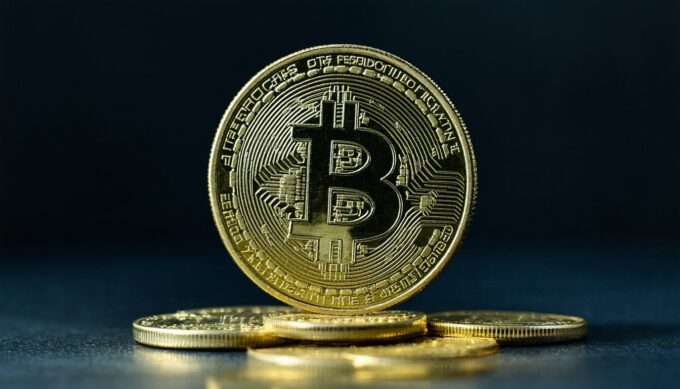Donald Trump, the 45th President of the United States, has long been a lightning rod for global headlines. Now, his evolving stance on cryptocurrency places him at the epicenter of one of the most disruptive technological debates of the modern era. With the 2024 election cycle intensifying—and blockchain assets increasingly influencing political and regulatory agendas—Trump’s crypto positions are closely watched by both industry stakeholders and everyday investors. This article explores the latest news on Trump’s involvement with cryptocurrency, analyzes his recent statements, and contextualizes his policy shifts as they stand to influence the future of digital assets in America.
Trump’s Evolving Relationship With Cryptocurrency
Early Skepticism and Public Critique
Trump’s original take on digital currencies was anything but supportive. Back in 2019, he tweeted, “I am not a fan of Bitcoin and other Cryptocurrencies,” expressing skepticism about their volatility and their potential use in illicit activities. At the time, his administration maintained a cautious—and at times adversarial—stance toward unrestricted crypto adoption, with top officials at the Treasury and SEC emphasizing the risks of fraud and financial instability.
Yet, Trump’s disavowal of cryptocurrencies fit within a broader pattern: his administration prioritized dollar dominance and stringent money-laundering regulations over rapid fintech innovation. Many observers interpreted this as a signal that the White House saw crypto more as a threat than a tool.
A Notable Shift: From NFT Sales to Policy Statements
By 2022 and 2023, the landscape—and Trump’s tone—began to shift. Trump released a series of non-fungible token (NFT) collections, selling out thousands of digital trading cards linked to his image and persona. The initiative marked his first personal foray into crypto technology, generating millions in revenue and signaling that even the most skeptical voices might find utility—and profit—within blockchain ecosystems.
“Trump’s NFT projects surprised the industry, signaling both his adaptability and an underlying recognition that digital assets have a role—at least commercially—in the modern world,” said crypto policy analyst Rachel Wolfson.
Beyond NFTs, more recent campaign events indicate a calculated pivot. Trump, speaking at rallies and in interviews, has increasingly positioned himself as a potential ally to the U.S. crypto sector, promising “clarity and fairness” should he return to the Oval Office.
Key Trump Crypto News: Recent Headlines and Developments
Public Declarations on Bitcoin and Crypto Regulation
In the wake of mounting regulatory scrutiny—particularly in 2023 and 2024—Trump’s campaign messaging has sharpened. On the campaign trail, he has pitched himself as a defender of American tech leadership, subtly contrasting his views with a perceived regulatory “crackdown” by Democratic officials. Most notably, he has:
- Suggested that future U.S. cryptocurrency policies should prioritize innovation while stamping out crime and scams.
- Criticized moves to launch a U.S. government-backed central bank digital currency (CBDC), arguing that such initiatives would increase government control over personal finances.
- Voiced support for miners and digital asset entrepreneurs, particularly arguing that energy policy should not “regulate crypto out of existence.”
These declarations have resonated with portions of both the crypto community and mainstream investors weary of regulatory uncertainty.

Political Fundraising and Policy Engagement
Trump has also begun accepting campaign donations in select cryptocurrencies, following steps taken by some 2020 campaign staffers and a handful of down-ballot candidates. This move serves both as a symbolic nod to the tech-savvy electorate and as an experiment with decentralized fundraising. Industry observers note that such actions often compel wider policy discussions.
In practice, Trump’s campaign has highlighted concerns about innovation “leaving American shores,” referencing real-world examples where crypto startups have moved headquarters offshore due to perceived regulatory risk.
Industry Reaction and Market Impact
These policy pivots have sparked significant interest across the digital asset ecosystem. Industry trade groups, such as the Blockchain Association and Chamber of Digital Commerce, have publicly welcomed any candidate willing to promise regulatory modernization. Meanwhile, some Bitcoin price movements have been loosely correlated with major Trump crypto statements—though many other market variables remain at play.
Although the impact on regulation is still unfolding, the mere prospect of a more crypto-friendly administration has injected notable optimism into some market segments.
The Political Stakes: Crypto Policy in the 2024 Election
Contrast With Democratic Policy Approaches
While Trump signals a willingness to cut red tape for crypto, leading Democrats—including SEC Chair Gary Gensler under President Biden—have pursued a more cautious and rules-based regime. Democrats typically emphasize consumer protection, anti-money-laundering, and environmental safeguards regarding crypto mining and trading platforms.
Trump has sought to leverage this difference, calling out what he terms “overregulation” and prioritizing arguments for U.S. competitiveness in blockchain infrastructure.
Crypto as a Campaign Battleground
Crypto policy, once niche, has entered the heart of the political mainstream in 2024. According to industry polling and advocacy groups, a growing percentage of voters (especially younger, independent, and libertarian-leaning) now consider Web3 policies a decisive factor during elections.
Trump’s efforts to court this demographic—coupled with rising institutional interest in Bitcoin ETFs and crypto innovation hubs—showcase digital assets as a new culture war flashpoint. Analysts note that such positioning could shape legislative priorities should Republicans regain Congressional or White House control.
Trump, NFTs, and the Business of Celebrity Crypto
Inside Trump’s NFT Projects
Trump’s NFT collections, launched via blockchain networks like Polygon, featured cartoon-style trading cards, offering digital memorabilia (and, in some series, access to fan experiences). Each release sold out within days, despite some controversy around their artwork and marketing tactics. The NFT campaigns reveal several key points:
- Mainstream entry: Major figures, even those previously opposed to crypto, can successfully use NFTs for branding and direct-to-fan engagement.
- Market validation: Trump’s personal involvement and sales success boosted the mainstream visibility of NFTs, even amid a cooling broader market.
Lessons for Digital Asset Adoption
Trump’s pivot illustrates how celebrity endorsements and commercial incentives can legitimize emerging markets, even amidst regulatory headwinds. However, critics caution that speculative manias around high-profile projects may still leave retail buyers vulnerable to volatility and rapid price corrections.
Outlook: What’s Next for Trump and U.S. Crypto Policy?
The coming months promise further developments as the intersection of politics and blockchain continues to evolve. Key questions remain regarding Trump’s potential influence, including:
- Will a potential Trump administration deliver on promises to clarify or relax crypto regulation?
- How might bipartisan tensions shape the fate of digital asset legislation in Congress?
- To what extent will campaign promises translate into actual policy change versus rhetorical positioning?
Looking ahead, both supporters and skeptics see Trump’s newfound openness to crypto as a sign that blockchain technology—once niche—is now a core American economic and political issue.
Conclusion: The Significance of Trump’s Crypto Pivot
Donald Trump’s journey from crypto critic to active participant and policy advocate exemplifies the broader maturation of digital assets on the national stage. As the 2024 election draws nearer, candidates’ stances on Bitcoin, blockchain, and regulatory clarity may shape not just market sentiment but the very future of financial innovation in the United States. For investors, entrepreneurs, and voters alike, tracking Trump crypto news is no longer a fringe pursuit—it’s essential reading for understanding the next chapter of American technology policymaking.
FAQs
What is Donald Trump’s current stance on cryptocurrency?
Trump has shifted from opposing cryptocurrencies to showing more openness, recently advocating for innovation-friendly policies and accepting crypto donations for his campaign.
Has Trump released any crypto-related products?
Yes, Trump has launched several NFT (non-fungible token) collections, leveraging blockchain technology to sell digital trading cards featuring his likeness.
Does Trump support a U.S. central bank digital currency (CBDC)?
Trump has spoken against the creation of a U.S. CBDC, warning it could give the federal government increased control over personal finances.
How do Trump’s crypto views differ from President Biden’s administration?
Trump emphasizes deregulation and U.S. competitiveness, while the current administration has focused on tighter regulations for consumer and financial protections.
How are crypto markets reacting to Trump’s statements?
Certain Trump statements and campaign moves appear to boost optimism or discussion in parts of the crypto sector, though broader market forces also play a significant role.









Leave a comment